FAQs
We understand that you may have a lot of questions about your oral health and our services, so we’ve put together this comprehensive list of common questions and answers to provide you with the information you need.
Whether you’re curious about our procedures, pricing, or dental hygiene tips, we’ve got you covered. However, if you don’t find the answer to your question here, please don’t hesitate to get in touch with us.
Our friendly and knowledgeable team is always ready to provide additional information and support to ensure that you receive the best dental care possible.
Tips:
- Check out these links for tooth brushing technique
- Try watching a video, listening to a song or my personal favourite, compete with your significant other. This will help you brush for an ideal length of time without having to think too hard about it.
- Consistency is key to reducing bacterial growth, no matter what toothbrush you use if we don’t use it daily, bacteria creates a sticky barrier that becomes harder and harder to remove.
When you come for a hygiene appointment with our Oral Health Therapists they will assess your current brushing ability (so make sure you don’t do an extra hard brush otherwise we can’t assess it accurately!)
This allows them to show you areas you may be finding harder to reach and they have some great tips & tricks up their sleeves to help.
If you aren’t a fan a fluoride that fine too! We have a great recommendation. Most people go for the Redseal brand of toothpaste for a fluoride free alternative BUT unfortunately this toothpaste doesn’t contain any ingredients that give back to your teeth. A better alternative would be Grin Toothpastes. Why? As well as being fluoride free Grin offers an ingredient called hydroxyapatite which aids out teeth!
Read more about how it works on our page fluoride & alternatives.
Short answer, yes. Brushing can clean only around 60% of your tooth surfaces. To reach the remaining surfaces flossing is the key. There’s different ways to floss though, so which is best?
Traditional flossing – the stock standard string floss. This is a very effective method, if you do it right – don’t worry we can teach you! It’s also the hardest to learn but once you’ve got it you’ll be off and away.
Interdental brushes – these are tiny little “bottle brushes” as my patients like to call them. IN recent research from 2018 it showed this is one of the most effective forms of cleaning in between our teeth. They come in varying sizes to allow for use in all different areas. Still a little technical but again very effective!
Water-flossing – this is a high powered jet of water that you manoeuvre around the gum and in between teeth. Again in recent research it has been shown to be an effective cleaning method especially for periodontal disease as you can remove food particles from deeper gum pockets
Toothpicks – a classic but unfortunately it is the only aid that has been proven to be ineffective, so it won’t do much except possibly damage your gums.
If you are brushing and flossing daily, mouthwash is not needed. Although it gives us a sense of cleanliness it doesn’t remove the “sticky” bacterial layer that forms on our teeth. If we mouthwash after brushing our teeth, we also remove any remaining fluoride from the toothpaste, removing its potential benefit.
The main time we will recommend a mouthwash is for the management of gum disease such as gingivitis or periodontal disease as this specific mouthwash targets the bacteria that causes that. In saying that we only ever recommend it for short periods of time
Signs that there could be something going on in your mouth that you need to see a clinician about are:
Bleeding when you brush or floss your teeth – usually a sign of inflammation of the gum caused by bacteria (not because you’re brushing/flossing too hard)
Pain or sensitivity to cold or hot drinks or food – This could indicate a hole in your tooth or loss of enamel (hard outer layer) exposing the dentine (soft inner layer).
Pain or sensitivity when eating sweets – this usually indicates the beginning of a hole in your tooth, possibly only in the outer layers or something just into the inner layer of the tooth
If you’re struggling with any of the above symptoms, book in with one of our team to check out what we can do to help.
Our check-ups are $99 for more info on whats included check out our check-ups page.
Dentists focus primarily on teeth health which covers a wide range of diagnostics and treatments. Hygienists focus on the health and longevity of the gums and the surrounding bone. Bone levels surrounding teeth can begin to recede over the years most commonly due to periodontal disease (chronic infection of the gums) but also other factors such as smoking or osteoporosis.
See what’s included in a typical hygiene appointment here.
Learn more about dental crowns here.
